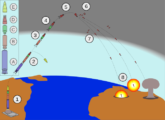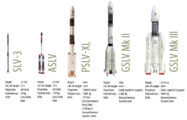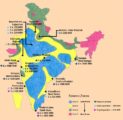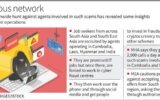
Nuclear Magnetic Resonance & Magnetic Resonance Imaging
Subscribe to Never Miss an Important Update! Assured Discounts on New Products!
Must Join PMF IAS Telegram Channel & PMF IAS History Telegram Channel
Nuclear Magnetic Resonance (NMR)
- Nuclear Magnetic Resonance is an analytical chemistry technique used in quality control & research.
- Nuclear Magnetic Resonance (NMR) can determine the content at the molecular level.
- NMR spectroscopy is the study of molecules
- by recording the interaction of radiofrequency (Rf) electromagnetic radiations
- with the nuclei of molecules
- placed in a strong magnetic field.
- Hence NMR can be used to determine the purity of a sample as well as its molecular structure.
- The NMR test is not required for honey that is being marketed locally but is needed for export.
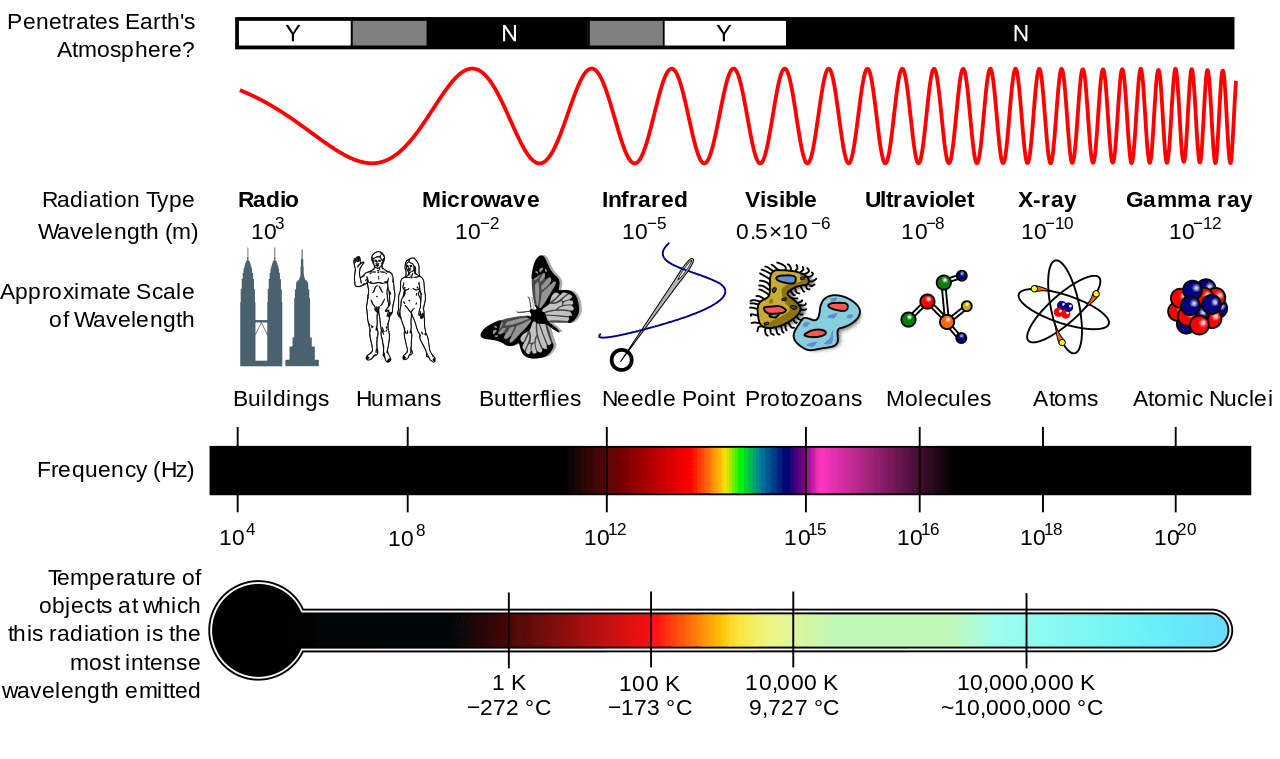
Electromagnetic Spectrum – Wikipedia
Magnetic Resonance Imaging (MRI)
- MRI is a medical imaging application of nuclear magnetic resonance (NMR).
- MRI is used in radiology to form pictures of the anatomy and the physiological processes of the body.
- Radiology: a medical discipline that uses medical imaging to diagnose & treat diseases.
- Imaging techniques in radiology: X-ray (ionizing radiation), ultrasound (no ionizing radiation – it uses sound waves and sonar technology), computed tomography (CT – 5 to 10 times more ionizing radiation than X-ray), magnetic resonance imaging (MRI – no ionizing radiation), etc.
- MRI scanners use strong magnetic fields and radio waves to generate images of the organs in the body.
- MRI does not involve X-rays or the use of ionizing radiation, which distinguishes it from CT.
- Hence MRI is seen as a better choice than a CT scan.
- Compared with CT scans, MRI scans typically take longer and are louder.
- In addition, people with metal medical implants may be unable to undergo an MRI examination safely.
- This is because of the strong magnetic fields employed by the MRI Scanner.
Magnetic Field in an MRI Scanner
- MRI scanners have giant electromagnets with field strengths of between 0.5 tesla and 1.5 tesla (1,500 times more powerful than a fridge magnet and 30,000X the geomagnetic field).
- For reference, a fridge magnet is about 0.001 tesla, and the Earth’s magnetic field is 0.00005 tesla.
Working of an MRI Scanner
- The human body is mostly water (hydrogen and oxygen), and when in the massive, stable magnetic field of the scanner, the hydrogen protons get aligned in the same direction.
- A radiofrequency source is then switched on and off, repeatedly knocking the protons out of line and back into alignment.
- Receivers pick up radio signals that the protons send out, and by combining these signals, the machine creates a detailed image of the body’s inside.
- Because of the machine’s giant magnetic field, hospitals and diagnostic centers issue detailed guidelines to ensure no metal objects are brought close.
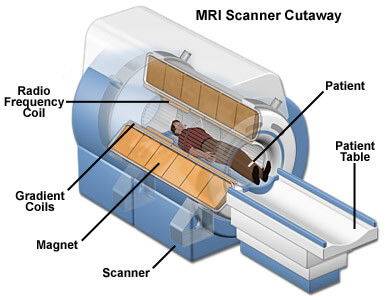
Accidents while scanning
- Accidents occur when metal objects are mistakenly brought close to the MRI Scanner.
- When people stand in the way of a metal object and an MRI Scanner, they may be knocked out by the fast-moving metal object which is strongly attracted by the strong electromagnets of MRI Scanner.
Adulteration of Honey & Nuclear Magnetic Resonance
- According to researchers from the Centre for Science & Environment (CSE), major Indian brands are selling honey adulterated with a modified sugar from China.
- Initially, sugars from corn, sugarcane, rice, & beetroot used to be added to honey to increase sweetness.
- Such adulteration is detected by basic tests.
- The modified ‘Chinese sugar’, however, can only be detected by Nuclear Magnetic Resonance (NMR).
- NMR tests have very recently been made mandatory in India for honey that is meant for export.
Impact of honey adulterated with Sugar Syrup
Economic Impact
- Sugar-syrup honey was often available at half the price.
- This is a big blow to beekeepers (the majority of them are in the North-East).
Health impact
- Pure honey has antimicrobial & anti-inflammatory properties.
- Consuming adulterated honey leads to unintended sugar ingestion which leads to obesity.
Measures required to prevent honey adulteration
- A mechanism for traceability of the source of honey (blockchain technology can be used in this).
- Develop advanced Nuclear Magnetic Resonance (NMR) testing facilitates in India (the existing facilities are not sophisticated enough & can be tricked easily) & make NMR tests mandatory for the domestic market.
- Stringent enforcement of quality standards & hefty penalties for violations.
India’s first honey testing lab
- India’s first honey testing lab was set up by National Dairy Development Board (NDDB) at Anand (known as Milk Capital of India; Amul dairy is here), Gujarat.
- The testing lab will unlock potential for apiarists to take advantage of exports to the US and Europe.
- Till recently, the exporters were required to ship their samples to Germany for testing.
- The development comes after National Bee Board’s decade-long wait for a government testing facility.
- The new lab is the only accredited laboratory that can test honey samples as per FSSAI’s regulations.
Paid users of Science & Technology Notes can download the above content from Sci & Tech April 2021 Current Affairs






